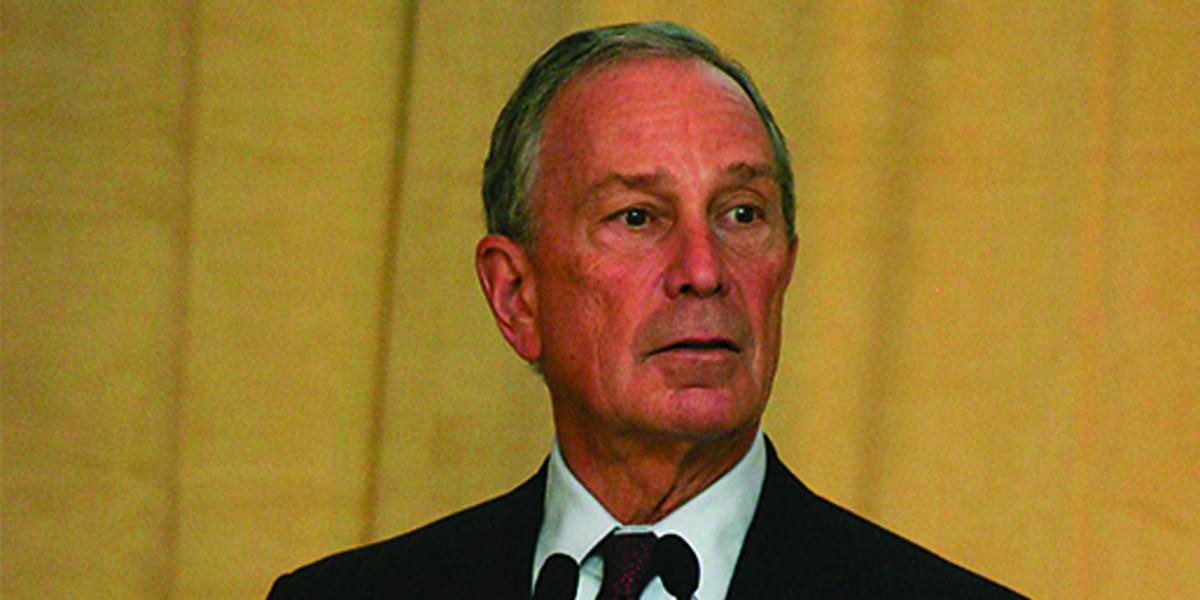A Lasker Award for a Public Health Philanthropist and Policymaker
Mayor Bloomberg has aggressively pursued policies that have saved lives and improved the public's health
New York City Mayor. Philanthropist. Entrepreneur...
To his list of superlative credentials, Michael R. Bloomberg can now add Lasker Award laureate.
The prestigious Mary Woodard Lasker Public Service Award was presented to Mayor Bloomberg on October 2 in recognition of his advancement of public health through public policy and private philanthropy.
Since taking office in 2002, Mayor Bloomberg has aggressively pursued policies that have saved lives and improved the public's health. Among his successes, he banned smoking in public places, removed trans fats from restaurants and organized mayors to stem the tide of illegal guns
The Bloomberg School was renamed in his honor in the spring of 2001 in recognition of his generous support of the School and Johns Hopkins University.
"He took what we know and put it into action," says Dean Michael J. Klag, MD, MPH '87. "He really believes in the power of public health, and he lives that as mayor."
In his signature public health effort, Mayor Bloomberg led the campaign to reduce tobacco use in New York City in 2002 by banning smoking in public restaurants and bars, raising cigarette taxes from 8 cents to $1.50 per pack, launching an anti-smoking media campaign and freely distributing nicotine replacement therapy. There are 300,000 fewer smokers in New York today than when he took office in 2002, preventing an estimated 100,000 unnecessary deaths.Tobacco use by teenagers has been halved. In addition, other cities (such as Baltimore), states and countries have since initiated smoke-free workplace laws.
When Mayor Bloomberg proposed the tobacco regulations in 2002, it ignited a firestorm of opposition from smokers,restaurant and bar organizations and others.They argued in part that the regulations would drive away customers. (In fact, business increased following the smoking ban.) "I got a lot of one-finger waves in parades,particularly when I went by bars, but today, it's inconceivable in New York that they would roll back the smoking ban," says Mayor Bloomberg.
The mayor also took on another dicey political issue: illegal guns. His administration targeted gun dealers suspected of selling illegal guns to criminals in the city. In 2006, undercover stings identified dealers who made illegal sales to 'straw purchasers' who were buying the guns on behalf of someone else who could not legally buy or possess firearms. The city sued 27 gun dealers who made illegal sales.Nearly all of them agreed to change their business practices to prevent illegal gun sales. Mayor Bloomberg also founded the group Mayors Against Illegal Guns, which now includes 450 mayors.
"He has incredible courage to do what is right. And that's his appeal. He does what he thinks is right," says Dean Klag. "I would say that there has been no elected official who's had the impact on the health of the community that he's had, in the United States and around the world."
Alfred Sommer, dean emeritus of the Bloomberg School, credits Mayor Bloomberg with bringing "visibility and credibility" to public health issues. He recalls a telling meeting with Bloomberg before he became mayor that presaged his ideas on government responsibilities in public health. After a School faculty member's presentation about research into reducing tobacco use, Sommer recalls Bloomberg saying, "'That's not a research issue. That's an issue of political leadership. If it's not happening, it's because we do not have adequately informed political leaders.'" When Bloomberg became mayor, he acted on those ideas, says Sommer, who won the Albert Lasker Clinical Medical Research Award in 1997 for his vitamin A research. "He created the political will," notes Sommer, who is now chair of the Lasker Foundation board of directors but does not influence the jury's selection of Lasker recipients.
Mayor Bloomberg has made a global impact in public health through his private philanthropy. His foundation spearheaded a major new initiative to curb tobacco use in 15 low- and middle-income countries, where more than two-thirds of smokers live. Bloomberg Philanthropies committed $375 million to this initiative, enlisted global partners from the public and private sectors, and inspired Bill Gates to contribute $125 million to the effort. Almost 400 million people worldwide are newly protected by effective tobacco control measures, attributable at least in part to the resources made available through Bloomberg's efforts.
Based on the success of the global tobacco control work, Mayor Bloomberg has taken on another major global killer: road safety. To address the more than 1.2 million deaths occurring on the world's roads annually, Bloomberg again assembled a team of experts and health authorities to work with governments and other organizations to reverse the deadly toll of road crashes.
What makes Mayor Bloomberg exceptional is his willingness to act in the defense of public health, says Sommer, MD, MHS '73. "Mike just didn't say something should happen. In the face of enormous public opposition, he actually made it happen and set an example and demonstrated that, in the end, you could make a difference in public health, you could make a difference in people's behaviors, and you could improve outcomes and reduce morbidity and mortality."
